I wrote this article in Japanese and translated it into English using ChatGPT. I also used ChatGPT to create the English article title. I did my best to correct any translation mistakes, but please let me know if you find any errors. By the way, I did not use ChatGPT when writing the Japanese article. The entire article was written from scratch by me, Saikawa Goto.
Introduction
Movies and books covered in this article

Three takeaways from this article
- From her stance of “praising” Goebbels, we can sense the high credibility of her remarks.
- The feeling of being dominated by the “oppression” that she realized later when looking back.
- What does “former secretary to Goebbels” have to say about the Holocaust?
Self-introduction article


Published Kindle books(Free on Kindle Unlimited)
“The genius Einstein: An easy-to-understand book about interesting science advances that is not too simple based on his life and discoveries: Theory of Relativity, Cosmology and Quantum Theory”
“Why is “lack of imagination” called “communication skills”?: Japanese-specific”negative” communication”
The quotes used in this article are based on notes taken at the movie theater from movies in Japanese and are not direct quotes from the foreign language original movies, even if they exist.
A Movie Called “A German Life” Where a Female Secretary of Goebbels, Who was Number Two in Nazi Germany, Talks about History in front of a Camera

Goebbels was the Minister of Propaganda, who was number two in Nazi Germany after Hitler. His secretary was Brunhilde Pomsel. This movie features her talking about Nazi Germany when she was 103 years old. She passed away at the age of 106 in 2017.
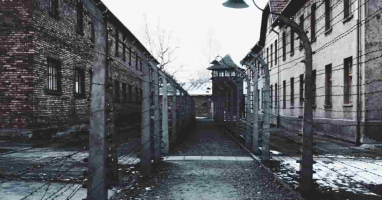
From Her Way of Speaking, I Felt that She was “Speaking the Truth”
In the movie, of course, the cruel events committed by Nazi Germany, such as the Holocaust, are also touched upon. However, she was Goebbels’ former secretary, and there are many scenes where she talks about “what kind of person Goebbels was.” And from her way of speaking, I felt that “she is speaking her own truth.” There may be a possibility that she is speaking incorrect facts due to misremembering or other reasons, but I don’t think she is intentionally lying.

I sensed it from her following remarks.
He was refined and well-dressed in a suit.
However, he was slightly dragging his feet.
His appearance was a bit pitiful.
He was always a gentleman in the office and never lost his composure.
There was only one exception when he was yelling at someone.
No one could believe the situation.
It has never happened again since.
He was originally a calm and self-controlled person.

Depending on how you look at these statements, you might feel like she holds Goebbels in high esteem. She includes this kind of evaluation of her former boss, Goebbels, throughout her comments.
Now, this is just my imagination, but even she must understand that “complimentary remarks about Goebbels” could be the subject of criticism. Her life has been viewed through a heavily biased lens simply because she was “Goebbels’ former secretary,” and there is no benefit to making comments that evaluate such a former boss. Even if it is a lie, you can imagine that she would be less critical of herself if she said something like, “He was an unpleasant guy.

However, she would have testified Goebbels as she probably felt at the time. For me, that enhances the credibility of her testimony.
Of course, as I wrote earlier, there is also the possibility that memories are being unconsciously altered. There is also a possibility that future discoveries will contradict her testimony. It can’t be helped. However, at least in her own mind, I think that she is approaching this interview with the consciousness of “telling the truth without lying.”

This is my basic stance after watching this movie. I think that each person has a different way of receiving a movie, but I think that the following article should be read with this premise in mind.
Her Feeling that ” I did Foolish Things, But They were Unavoidable “

I may have some errors in my understanding since I don’t remember the exact structure of the movie, but I think Brunhilde Pomsel is “being questioned and answering them” in the film. However, I do remember that the question itself is not included in the footage, and it is structured as if she is speaking alone.
While her story jumps to various memories, when considering her testimony as a whole, the 103-year-old’s actual feeling could be summed up as “I did foolish things, but they were unavoidable.” It is certain that her behavior was “wrong,” but she couldn’t have judged it that way at the time, and even if she could have, avoiding it would have been difficult. I think she was speaking in that way as a whole.

I also wanted to receive the kind of education that young people have today.
We were expected to be obedient.
That was my fate.
There couldn’t have been anyone who could control their destiny during such turbulent times.
No one, no matter who they were, could resist. It was impossible to go against the system.
If you tried to do that, you had to be willing to risk your life.
You had to be prepared for the worst.

I feel that her feeling is “legitimate”. Although I am not from a generation that experienced war, I know that in modern times, there is also a reality where various “invisible pressures” move all aspects of society. Even in modern-day Japan, which can be called “peaceful,” cases where the worst situation is reached without being able to “oppose the system” still occur. It would have been even more severe during wartime, and we can imagine that it was even more severe under the rule of “Nazi Germany” that we know of.
In the 2019 movie “Revolution of Our Times,” which depicted the Hong Kong protests, I was strongly impressed by the scene where one of the protesters said, “I can’t raise my voice unless I risk my life.” Her feeling is by no means irrelevant even in modern times.
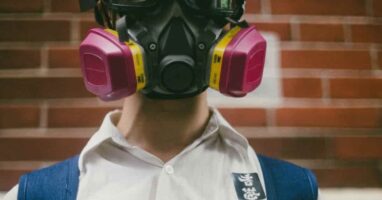
That’s why I was surprised by her statement.
People today often say, “If I were living in that era, I would have done more, like help the Jews who were being massacred.”
I understand where they’re coming from. It’s probably a sincere sentiment.
But I think they also would have done the same thing as everyone else did.
Because it was like the whole country was trapped in a glass dome.
“If I were living in that era, I would have done more” feels like a word that lacks imagination to me. If we think of it as “people in the past were foolish,” it will be difficult to learn from history. If we don’t see it as “people were foolish, but the era was foolish,” the same thing will happen again.
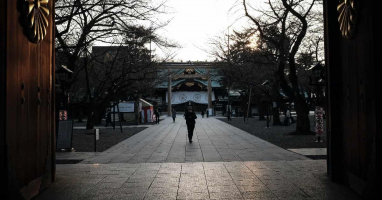
In that sense, this film made me more interested in “how her testimony is received by people today” than in “Brunhilde Pomsel’s testimony itself”. It might be interesting to make such a film.
From Her Testimony, We can Understand the Feeling of being Trapped in a “Glass Dome”
Now, it goes without saying, but she was just a “secretary,” nothing more and nothing less. She can only talk about that time from the standpoint of a “secretary.” The fact that she was “Goebbels’ secretary” is unique, but she was just a “citizen” after all.

I want to capture the feeling of “repression” at that time from her impression as a “citizen” and her statement “it was like the whole country was trapped in a glass dome.”

I think my heart was numb.
I had felt fear many times in my life before that.
But at that time, I was as calm as ice.
Did they even have no room to feel fear?

This statement may best express her feeling. “Looking back, I realized that I was being oppressed.” That’s probably the honest feeling. I don’t remember exactly what “that time” in this statement refers to, but I think it referred to “living under Nazi Germany’s rule in general.” The phrase “They even had no room to feel fear” implies that she wasn’t in a situation where she could consciously feel the emotion of “fear,” so it’s understandable that it didn’t lead to a feeling of “oppression.”
I can only imagine, but I think humans probably cannot “continuously feel fear.” For example, although the situation is different, non-fiction and documentaries sometimes feature “women who have been kidnapped and imprisoned for a long time.” And, when the captivity continues for several years or more, humans would begin to have emotions different from “fear,” and I feel that way every time I learn of such cases. It may be physiologically impossible for humans to feel fear continuously. I think that the defense mechanism kicks in and at some point, “fear” is replaced by something else.

Her testimony should also be interpreted as including such a background. In a sense, it is reinforced by the following testimony:
I liked it because there were a lot of good people, and it was comfortable.
This statement reflects back on the time when she worked at the broadcasting station before becoming Goebbels’ personal secretary, but Goebbels was still her boss at the broadcasting station. She talks about that environment being “comfortable.” It is unclear exactly what interpretation she had of that “comfort,” but I imagine it was something like unconsciously focusing on the “good parts” to avoid looking at the “fear.”
I worked in the given place and did what I thought was good. For everyone.
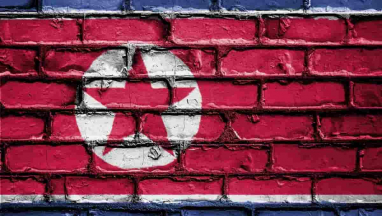
At the beginning, she also says something like this. The expression “did what I thought was good” seemed to be a reflection of the feeling that “whatever it was, I wanted to think that what I was doing was a good thing.” In a sense, this may also be because of the “fear” that she had been unconsciously feeling.
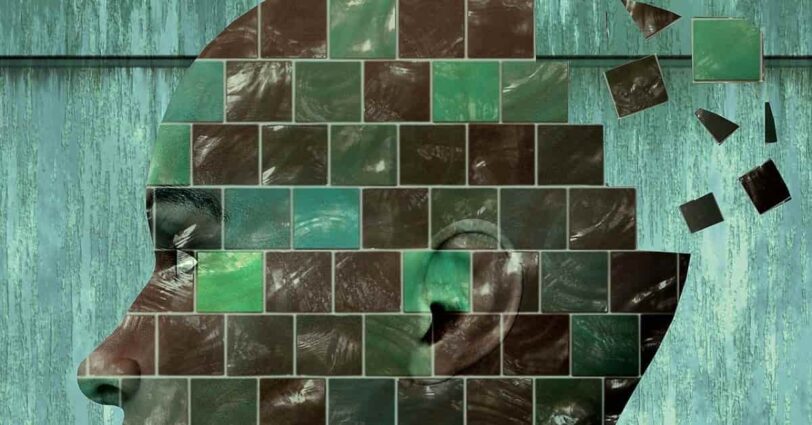
Of course, this way of looking at it is only my “interpretation,” and I do not know what actually happened. However, I think it is wrong to simply take these words at face value without exercising our imagination and think “she was actively involved in Nazi Germany because she said the “place was comfortable.” This is because this is no different from viewing “past humans as foolish,” as I wrote earlier.
Rather, we should consider the “lack of imagination” that leads us to say, “if I were living in that era, I would have done more.”

Now, let’s talk about something different. There is a scene where she talks about an episode when Goebbels placed an unsealed envelope in front of her and said, “I trust you, so please don’t look inside.”
As long as he trusts me, I don’t want to betray him.
I feel proud of myself for that.
Trust is more important than satisfying my curiosity,
She said. I don’t know what intention she had for making this statement. It is possible that she simply spoke of it because she remembered it, without any particular intention. However, this statement seems to have the intention of conveying that “I don’t know specifically what Goebbels was doing,” perhaps to avoid being seen as someone who “should know everything since she was his secretary.”

If she really made the statement with that intention, it could be called “self-defense”, and if you look more carefully, there may have been similar statements. At the same time, I also felt that “well, I guess I’d want to make one or two self-defenses.” If I were in the same position as Brunhilde Pomsel and stood in front of the camera, I would think, “I know I did something wrong, but I don’t want to be overly criticized,” and would also put up defensive measures. After all, I feel that it takes courage to stand in front of the camera. Even if it’s a “self-defense” statement, I think it’s only natural to do so.
Her Testimony about the Holocaust
When we think of Nazi Germany, the Holocaust is an inseparable part of it. How did she talk about the Holocaust?

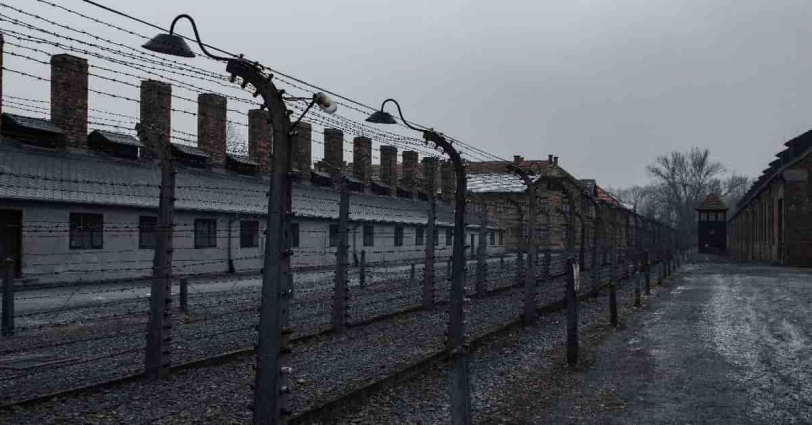
We are not believed.
Everyone thinks we knew it.
She laments in that way. She has likely been called various things before. Certainly, it may be somewhat inevitable that she is seen as “If she was Goebbels’ secretary, she should have known.” Especially among ordinary citizens.

She had heard of the existence of “concentration camps,” but her understanding of their purpose was like this:
When I first heard rumors about concentration camps, I thought that the people sent to such facilities were probably those who criticized the government or got into physical fights.
Since it’s impossible to send everyone to penitentiaries, they would first be sent to concentration camps for correction, I thought.
No one gave it much thought.
It’s certainly true. I don’t remember when I first heard about the Holocaust or what my reaction was, but I probably felt, “Did such a thing really happen?” Without actually seeing the situation firsthand, it would be impossible to imagine things like “pushing large numbers of Jews into gas chambers to kill them.”

She also spoke like this:
If we gather Jews in empty villages, they can become one.
We believed that explanation.
Basically, I perceive that she is “speaking facts according to her memory,” so I feel it is more important to understand from this statement the fact that “even the subordinates of Nazi Germany were not informed of the Holocaust’s reality”. I can only imagine the reason for this, but given that she had been given a “false explanation,” it indicates that the higher-ups were also thinking that there was a risk of the Jewish massacre being judged as “wrong.”

She said that she first learned about the fact that “Jews were being massacred” after being detained in the Soviet Union for five years after the war ended.

In the movie, various documentary footage capturing the wartime is shown with intermittent displays of the words left behind by Goebbels. The most shocking of all was a scene from a film that was never actually released, but was made by Germany for publicity purposes. It shows Jews being thrown into a hole and buried. Emaciated Jewish people lying around the city were carelessly loaded onto something like a cart and transported to the pit. Then, they were slid down a kind of slide into the pit, where German soldiers waiting below laid them out without any gaps.
What they were trying to “advertise” with these footages is a mystery to begin with, and I was surprised by the sheer horror of it all. It is hard to believe that these were the actions of the same people, and the footages made me realize the horror of Nazi Germany.
Conclusion
At the end of the movie, she said with a choked throat,
God doesn’t exist, but the Devil does.
There’s no such thing as justice.
I felt that those words were filled with indescribable emotions of a woman whose fate had been tremendously derailed, despite the fact that she was merely present in that place at that time.

Even now, Russia is still invading Ukraine. Even in present-day Russia, there are probably many people in positions like Brunhilde Pomsel, who was “Goebbels’ secretary.” History inevitably repeats itself. To prevent the same nightmare from happening again as much as possible, we must take Brunhilde Pomsel’s words as a lesson and grasp reality.

Published Kindle books(Free on Kindle Unlimited)
“The genius Einstein: An easy-to-understand book about interesting science advances that is not too simple based on his life and discoveries: Theory of Relativity, Cosmology and Quantum Theory”
“Why is “lack of imagination” called “communication skills”?: Japanese-specific”negative” communication”

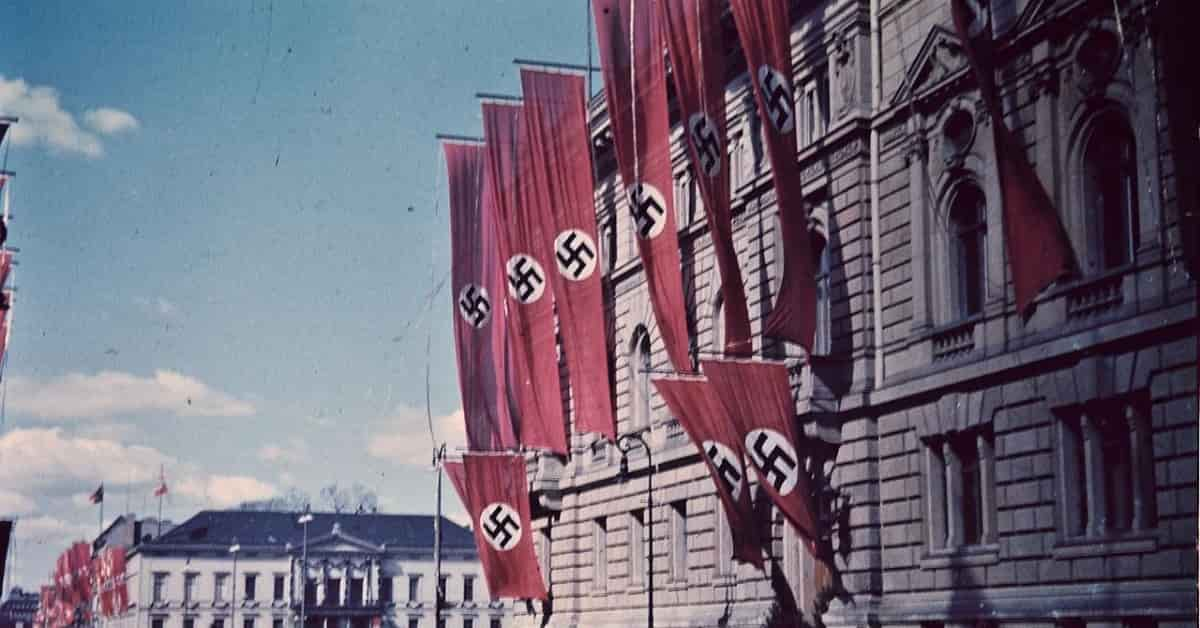





コメント